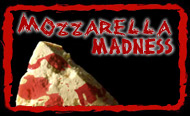
The Evil Dead (1981)
Studio: Lionsgate Home Entertainment
Release date: October 9th, 2018
Reviewed by: Brett Gallman (@brettgallman)
The movie:
Note: for a straightforward review of The Evil Dead, click here. What follows are some scattered musings about the franchise inspired by my umpteenth viewing of the film, plus a rundown of the new 4K UHD release.
Conventional wisdom holds that franchises mostly diminish with the release of each new sequel, some of which prove to be so lousy that the entire bunch is sullied. While I’m not sure I completely buy into such logic, I do know that The Evil Dead certainly resists it, not only because each new entry is a classic in its own right, but also because they enrich the original film in a way few follow-ups do. What was once a humble independent picture about a group of friends encountering an unfathomable evil in the woods is now the starting point of a 35-year saga that has spanned film, video games, and television. I can’t imagine anyone had any of that in mind back in the early 80s, though, when Sam Raimi and his ragtag crew descended on a remote cabin in Tennessee to produce a splatter movie on a shoestring budget, and so the original film is almost like an unassuming prelude to an epic saga that’s even more effective now, with the weight and heft of those 35 years behind it.
Which is not to say it doesn’t still absolutely fucking shred as intended when viewed in a vacuum. Before it was simply the opening chapter of a saga, it was simply “the ultimate experience in grueling terror,” an 85-minute exercise in throwing five perfectly nice kids into a meat-grinder and marveling at how the visceral splatter sticks to the walls. Raimi exquisitely crafts every frame of the film to create a relentless sense of doom: these kids are fucked, something they should have realized when the rickety bridge they cross is falling apart. Or when they find the cabin’s swing mysteriously swaying on the porch. Or when an ethereal fog smothers the entire patch of dark, unfeeling woods. Or when they discover a book bound in human flesh bearing Sumerian incantations written in blood. Or when an undead entity possesses one of them, forcing the others to lock their own friend in a cellar, where she cackles from down below, insisting that they join her legion.
You get the picture, especially if, like me, you’ve witnessed The Evil Dead a dozen times and have its myriad of indelible images seared into your mind’s eye. But if you’re among the uninitiated, let me assure you that few—if any—films patch together unnerving atmosphere, disturbing body horror, and deranged, splatter movie showmanship quite like this one. It’s unsettling, gross, and thrilling, often all at once, and arguably the best representative of the 80s American splatter movie scene. From the beginning of his career, Raimi has been something of an anachronistic huckster peddling demented wares to bloodthirsty audiences, and The Evil Dead delivers a little bit of everything: mangled flesh, severed body parts, a gnarly decapitation, and goopy corpses melting into a puddle of visceral sludge, all of it soaked in gallons of gore and captured by the director’s frenetic, sometimes playful lens.
But what’s most striking about it after all these years is just how genuinely screwed up it is that poor Ashley J. Williams (Bruce Campbell) would bear this burden for the rest of his life. In this film, he’s not really Ash, the cocksure, chainsaw-wielding Lothario of the later films; instead, he’s just one of five kids looking to enjoy a relaxing trip away from college with his friends. Later films (and the TV series) would also paint him as a doofus cursed to do battle with evil, but it’s actually more Scotty’s fault in the original, as he’s responsible for playing back the incantation that raises the unseen evil in the first place. As such, Ash is originally just this poor bastard with an idiot friend who somehow manages to survive the ordeal—but not until all of his friends are left butchered, some by his own hands.
During his further battles with evil, however, Ash became an icon marked by an infectious, faux-bravado and catchy one-liners. He’s less a real person and more a larger-than-life comic book hero, at least in his own mind. In the 20+ years following the release of Army of Darkness, The Evil Dead franchise was about this numbskull who did more than simply survive: no, he thrived in the role as mankind’s chosen one to stand against the Deadite horde, whether it be during the present day or Medieval times. It was a triumphant tale, thanks in large part to Universal’s decision to force a happier ending on Army of Darkness, one that forgoes Raimi’s bleak—but darkly humorous—coda that finds Ash fucking up once again. Honestly, I always preferred Universal’s ending, mostly because it seemed like Ash deserved a happy, exultant moment after being an unwitting soldier in a battle he could never have imagined.
Spoiler-filled discussion of Ash vs. Evil Dead ahead:
But then Ash vs. Evil Dead came along and completely rewired my thinking, particularly because it insisted on treating Ash not as a conquering hero but as an actual human being who experienced some very unreasonable shit. What’s more, it turns out nobody even cared: here he is, decades later, still working at the same dead-end department store job and trawling greasy dive bars for one-night stands. And of course one of these one-night stands ends with him getting high and trying to impress his date with the Necronomicon, unwittingly unleashing evil all over again. That’s our Ash, you think, safe in the assumption that the TV series will be about our hero getting his groove back, reclaiming his mantle, and inspiring us all to “hail to the king, baby.”
In many ways, that is exactly what Ash vs. Evil Dead is about: it’s just that it takes an unexpected, circuitous route in arriving there. While each episode is boasts relentless, raucous splatter movie outbursts, they’re also guided by a genuine, heartfelt redemption arc of sorts for Ash. Campbell is marvelous in a tricky role, as Ash’s façade still oozes machismo and swagger; however, a subtle sense of insecurity often seeps through in quieter moments, revealing a man who’d much rather be downing Schlitz in his trailer than doing battle with evil—again. Maybe he isn’t broken, but that façade is in danger of crumbling under the weight of bitterness and regret. We learn during the course of the first season that Ash once had plans beyond his fateful trip to that cabin that included living in Jacksonville with his girlfriend Linda, who he instead had to decapitate with a shovel.
Of course, when you put it that way, it does sound a little absurd, and the series often features that glib, gleefully demented tone that Raimi injected into the film sequels. It didn’t leave behind the heart, though, and the choice to focus on what Ash lost due to his ordeal makes for a brilliant little twist. After all these years, Raimi and company were able to imagine their hero as a well-meaning but terminally bone-headed savior after all, unable to move beyond the shadow of the evil that shadowed his life for three decades. Season Two is expressly concerned with this, as it features Ash returning to his hometown not as a conquering hero but as a boogeyman: it turns out the entire town of Elk Grove—including his own father (Lee Majors)—didn’t believe his tale and actually accused him of hacking up his friends. The infamous legend of “Ashy Slashy” precedes his return home, where he has to confront the ghosts of his past: his embittered dad, the possessed spirit of his dead sister, an old flame, and even a long-lost daughter (Arielle Carver O’Neill).
Following Army of Darkness, it was always easy to assume that Ash rode off into the sunset, but the TV series brilliantly throws cold water on that notion, insisting instead that the experience actually broke him. My concerns about the repetitive nature of the last two seasons aside (I would have liked to see a location change, at least), Ash vs. Evil Dead makes for an strangely moving franchise extension, one that recovers the well-rounded, everyman humanity lurking within its hero that hadn’t really been on display since the original film. As the TV series progresses, we see more of that original Ash creep through: the unassuming, normal guy who never wanted any of this and scrappily fights back to survive. Only this time, he’s surrounded by a surrogate family (long live the Ghost Beaters) that enable him to embrace his destiny and become the prophesized hero of mankind. Likewise, Raimi’s original, somewhat bleaker ending to Army of Darkness is revisited here but with a crucial twist: this time, Ash is flung into a post-apocalyptic future but seems eager to be humanity’s savior in a Mad Max-inspired hellscape that will sadly go unseen beyond those fleeting, final moments.
It’s a shame we’ll never see that play out in a fourth season, but it’s an appropriate send-off all the same: as ever, Ash and evil are fated to do battle forever. I couldn’t help but think of this during the final shot of The Evil Dead, where the evil roars from the woods and tears through the cabin to claim Ash after all. Where that final shot was once a playful riff on the “final scare” cliché, it’s come to symbolize this eternal war: no matter what he does, he’ll always be caked in blood and locked in battle with these demonic hellspawn. Again, it's unlikely that Raimi intended this to be the case in 1981, but this makes for the rare instance of sequels adding a potent new dimension to an original film. The Evil Dead is as terrifying and thrilling as it ever was; however, a subtle pang of melancholy rumbles beneath it thanks to its unexpectedly poignant fallout.
The disc:
Even though Lionsgate absorbed Anchor Bay’s catalogue in a buyout a few years ago, it’s still business as usual when it comes to breaking ground on a new home video format. Déjà vu strikes once again, as both Halloween and The Evil Dead are leading the charge in terms of horror classics arriving on 4K UHD, enticing long-time collectors to add yet another copy of these films to their libraries. As has usually been the case, this is a worthwhile upgrade: even though Raimi shot The Evil Dead on 16mm, there’s a noticeable improvement in terms of detail (the frequent close-ups really pop) and colors. Granted, I haven’t watched a ton of 4K material yet, but this might be the most impressive disc I’ve seen so far: the film just looks so lucid and natural, all without sacrificing those vital filmic elements (like a healthy grain structure). It should be noted that only the original 4:3 aspect ratio appears on the UHD disc here: most releases during the past 15 years have offered a 16:9 reformatting that only appears on the accompanying Blu-ray disc in this release.
And since that Blu-ray disc is literally just the previous Anchor Bay release, the lone special feature included here is the newest commentary with Campbell, Raimi, and Rob Tapert. You might recall that a separate DVD housed the bulk of special features for that release, meaning you’ll want to hang onto it to have the a definitive Evil Dead collection. Just go ahead and keep it on your shelf right next to those old Book of the Dead editions that now reek of ancient, deteriorating latex, but also make room for this 4K release, which represents the best presentation of The Evil Dead on home video—for now. comments powered by Disqus Ratings:








